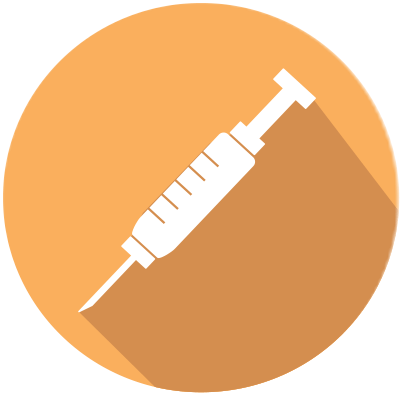
Cambridge Healthtech Institute’s 7th Annual
Antibody-Drug Conjugates
Next-Gen Engineering
January 21-22, 2020
Part of the Antibody Therapeutics pipeline
Antibody-Drug Conjugates have demonstrated their ability to deliver cytotoxic small-molecule drugs through a selective and targeted mechanism in the fight against cancer. In recent years, ADCs have entered almost 600 clinical trials with more than 60
distinct ADC molecules currently under development. Despite the enormous promise, a low therapeutic index has plagued ADC development, particularly for treating solid tumors.
Cambridge Healthtech Institute’s Antibody-Drug Conjugates conference explores the engineering finesse required to achieve the crucial balance between efficacy and safety, thus leading the way to more potent and targeted molecules. Case studies and
data will be shared that illustrate the ongoing efforts to engineer ADCs, move them into the clinic, and conquer cancer.
Final Agenda
Day 1 | Day 2 | Download Brochure
TUESDAY, JANUARY 21
1:00 pm Registration (Sapphire West Foyer)
1:30 Refreshment Break in the Exhibit Hall with Poster Viewing (Sapphire Ballroom)
2:00 Chairperson’s Opening Remarks
Ian Schwartz, MS, Global Technology Consultant, Bioconjugation, Sartorius Stedim North America, Inc.
KEYNOTE PRESENTATION
2:05 Learnings from Successes and Failures of ADCs and Cancer Immunotherapies
 Rakesh Dixit, PhD, DABT, President & CEO, Bionavigen, LLC
Rakesh Dixit, PhD, DABT, President & CEO, Bionavigen, LLC
Learning from failures & enabling innovations in ADCs and immunotherapies to fight against deadly cancers; what are common features among clinically successful ADCs and immunotherapies? What went wrong with some clinically unsuccessful ADCs? Why have
some immunotherapies failed? Top five lessons learned from the development of ADCs and immunotherapies in the last two decades; next-generation ADCs and immunotherapies meeting the five rights; combination of immunotherapies and ADCs: a new frontier
in the fight against cancers.
2:45 Antibody-Drug Conjugates: Progress, Pitfalls, and Promises
 Mark Glassy, PhD, Chairman,
Nascent Biotech, Inc.
Mark Glassy, PhD, Chairman,
Nascent Biotech, Inc.
Antibody-drug conjugates (ADCs) represent a promising and an efficient strategy for targeted cancer therapy. The therapeutic success of future ADCs is dependent on adherence to key requirements of their design and careful selection of the target antigen
on cancer cells. The main components in the design of antibody-drug conjugates, improvements made, and lessons learned over two decades of research are discussed.
3:15 ADC Bioanalysis in Support of Exposure-Response (E-R) Relationships for ADC Clinical Development
 Leo Kirkovsky, PhD, Director, Clinical Assay Group, Global Clinical Pharmacology, Pfizer, La Jolla
Leo Kirkovsky, PhD, Director, Clinical Assay Group, Global Clinical Pharmacology, Pfizer, La Jolla
3:45 Refreshment Break in the Exhibit Hall with Poster Viewing
FEATURED PRESENTATION
4:30 Exploring the Bioanalytical Strategy for ADCs
 Edit Tarcsa, PhD, Director
and Research Fellow, Drug Metabolism & Pharmacokinetics, Abbvie Bioresearch Center, AbbVie
Edit Tarcsa, PhD, Director
and Research Fellow, Drug Metabolism & Pharmacokinetics, Abbvie Bioresearch Center, AbbVie
ADCs are complex therapeutic modalities with the possibility of forming multiple analytes in vivo. A wide variety of assays on multiple analytical platforms has been utilized for their characterization. How does one choose
what is appropriate for decision making at the various project stages while balancing speed, quality, and reagent availability? A few case studies with bioanalytical decision trees will illustrate the issues and solutions.
5:00 NEW: Speaker Cancelled -- Novel Approaches to Modeling Preclinical Activity of ADCs and Informing Biomarker Strategy
 Tony D’Alessio, PhD, Senior Research Investigator, Oncology Biotherapeutics, Novartis Institutes for Biomedical Research
Tony D’Alessio, PhD, Senior Research Investigator, Oncology Biotherapeutics, Novartis Institutes for Biomedical Research
5:30 Close of Day
5:30 - 5:45 Short Course Registration (Sapphire West Foyer)
5:45 - 8:45 Recommended Dinner Short Course*
SC2: The Safety of Immunotherapy and ADCs: How to Mitigate Risk and Adverse Effects - Detailed Agenda
Instructors:
Rakesh Dixit, PhD, DABT, President & CEO, Bionavigen, LLC
George Octavian Badescu, PhD, Vice President, Scientific Affairs, Heidelberg Pharma AG
*Separate registration required
Day 1 | Day 2 | Download Brochure
WEDNESDAY, JANUARY 22
7:45 am Registration (Sapphire West Foyer) and Morning Coffee (Sapphire West & Aqua West Foyer)
8:15 Chairperson’s Remarks
Edit Tarcsa, PhD, Director and Research Fellow, Drug Metabolism & Pharmacokinetics, Abbvie Bioresearch Center, AbbVie
8:20 Antibody-Drug Conjugates for Immunology (iADC)
 Adrian Hobson, PhD, Research Fellow, Global Biologics – Antibody Drug Conjugates, AbbVie Bioresearch Center, AbbVie
Adrian Hobson, PhD, Research Fellow, Global Biologics – Antibody Drug Conjugates, AbbVie Bioresearch Center, AbbVie
Antibody-Drug Conjugates (ADC) combine the targeting of an antibody with the potency of a small molecule. Pioneered for oncology, there are 4 marketed oncology antibody-drug conjugates (oADC) and many in clinical development. This talk will describe the
technology behind oADCs, then the efficacy and safety challenges faced when modifying these novel therapeutic agents for immunology to enable an immunology antibody-drug conjugate (iADC) to progress to the clinic.
8:50 Amanitin-Based Antibody-Drug Conjugates as New Therapeutic Modalities for Cancer Therapy
 Stephanie Voss, PhD, Group Leader, Bioconjugation & Protein Chemistry, Heidelberg Pharma Research GmbH
Stephanie Voss, PhD, Group Leader, Bioconjugation & Protein Chemistry, Heidelberg Pharma Research GmbH
Antigen-Targeted Amanitin-Conjugates (ATACs) represent a new class of ADCs using the payload Amanitin. This payload introduces a novel mode of action into oncology therapy, the inhibition of RNA polymerase II. The technology platform includes Amanitin
supply, site-specific conjugation, demonstrated safety profile and biomarker. HDP-101 is the first ATAC directed against BCMA entering Phase I trials in 2020.
9:20 Developing Site-Specifically Modified ADCs using a Chemoenzymatic Approach
 David Rabuka, PhD, CEO and President, Acrigen Biosciences, Inc.
David Rabuka, PhD, CEO and President, Acrigen Biosciences, Inc.
We will present recent data on our SMARTagTM technology platform and its application to generating novel bioconjugates, including ADCs, utilizing our new conjugation chemistries and linkers. The application of these chemistries to the generate site-specifically modified bioconjugates with improved efficacy against numerous targets and safety profiles will be presented. Additionally, we will highlight progress in developing conjugates with a focus on preclinical studies as well as highlight our progress with the SMARTagTM technology in the clinic.
9:50 Coffee Break in the Exhibit Hall with Poster Viewing (Sapphire Ballroom)
10:35 Peptide Nucleic Acid (PNA)-Mediated Pretargeting for Radionuclide Therapy
 Amelie Eriksson Karlström, PhD, Professor, Protein Sciences, Engineering Sciences in Chemistry, Biotechnology and Health, KTH Royal Institute of Technology
Amelie Eriksson Karlström, PhD, Professor, Protein Sciences, Engineering Sciences in Chemistry, Biotechnology and Health, KTH Royal Institute of Technology
Radioimmunotherapy utilizes tumor-specific radiolabeled antibodies to deliver cytotoxic radiation to tumor cells. To avoid unwanted exposure of non-tumor organs, we use pretargeting to uncouple the tumor-targeting step from the delivery of the toxic radionuclide.
We have developed and evaluated a system for pretargeting based on the high selectivity and high affinity of PNA:PNA (peptide nucleic acid) hybridization. The primary agent is administered first, and the secondary, radiolabeled agent is administered
after the primary agent has accumulated in the tumor and cleared from non-tumor tissue.
11:05 Probody Therapeutics in the Treatment of Cancer
 Siew Schleyer, PhD,
Director, Oncology Research, CytomX Therapeutics, Inc.
Siew Schleyer, PhD,
Director, Oncology Research, CytomX Therapeutics, Inc.
ProbodyTM therapeutics are fully recombinant antibody-based prodrugs designed to remain largely inactive in circulation until proteolytically activated in the tumor microenvironment. They are designed to protect normal tissues while increasing the concentration
of active antibody in tumors, thus widening the therapeutic index. Probody technology can be applied to multiple antibody-based therapies. Examples will include Probody therapeutics based on checkpoint inhibitor antibodies, T cell-engaging bispecifics,
and will focus on antibody-drug conjugates.
11:35 NEW: SELECTED POSTER PRESENTATION
A Different "ADC": Albumin-Drug Conjugates with Controlled Loading for Improved Antitumor Efficacy
Debadyuti Rana Ghosh, PhD, Assistant Professor, Molecular
Pharmaceutics & Drug Delivery, University of Texas at Austin
12:05 pm Session Break
12:15 Luncheon Presentation (Sponsorship Opportunity Available) or Enjoy Lunch on Your Own
1:15 Session Break
Aqua Salon
1:45 PLENARY KEYNOTE PANEL
The PepTalk Plenary Keynote Panel convenes a group of leading scientists working across novel therapeutic modalities and R&D technologies to explore the many challenges associated with discovering, developing, and advancing today’s novel
biotherapeutics. The Panel, via a highly interactive format, encourages discussion among both the panelists and the audience members. Please come prepared with your questions and ideas for this spirited discussion.
- Advances and challenges in expression and production for novel modalities
- Implementing next-generation informatics: data collection, standardization, analysis, ML/AI, and considerations for IP landscape and protection
- Implementing R&D and production capacity for gene and cell therapies – where are we heading?
- Modality-specific challenges: multi-specifics for cancer, improving the ADC therapeutic window, improved safety and pharmacology, novel delivery/targeting
- Preclinical and clinical development of drug combinations with focus in IO: How do we select the right combination dose so we can accelerate clinical development?
Moderator:
 Mohammad Tabrizi, PhD, Senior Director, Pharmacology, Ascendis Pharma A/S
Mohammad Tabrizi, PhD, Senior Director, Pharmacology, Ascendis Pharma A/S
PANELISTS
 Edward Kraft, PhD, Senior Scientific Manager, Biomolecular Resources, Genentech
Edward Kraft, PhD, Senior Scientific Manager, Biomolecular Resources, Genentech
 Ilya Shestopalov, PhD, Associate Director, Cell Analytics, bluebird bio
Ilya Shestopalov, PhD, Associate Director, Cell Analytics, bluebird bio
 David E. Szymkowski, PhD, Vice President, Cell Biology, Xencor, Inc.
David E. Szymkowski, PhD, Vice President, Cell Biology, Xencor, Inc.
 Alayna George Thompson, PhD, Senior Scientist I, Drug Discovery Science & Technology, AbbVie
Alayna George Thompson, PhD, Senior Scientist I, Drug Discovery Science & Technology, AbbVie
3:05 Refreshment Break in the Exhibit Hall with Poster Viewing
4:00 Chairperson’s Remarks
Jonathan van Dyck, Scientist, Analytical Sciences, Seattle Genetics
4:05 Antibody-Drug Conjugates as Targeted Conditioning Agents for Bone Marrow Transplant Patients
 Bradley Pearse,
PhD, Director, Biotherapeutics, Magenta Therapeutics
Bradley Pearse,
PhD, Director, Biotherapeutics, Magenta Therapeutics
Current regimens for patient preparation, or conditioning, prior to bone marrow transplant in malignant and non-malignant settings are non-selective and toxic, limiting the use of this curative procedure due to regimen-related morbidities and mortality.
To address this, we developed antibody-drug conjugates (ADCs) that specifically deplete recipient target cell populations to enable robust donor cell engraftment. Thus, ADCs may enable curative treatment through safer and targeted conditioning
prior to transplant.
4:35 Characterizing Antibody-Drug Conjugate CQAs Considering Multiple Mechanisms of Action
 Jonathan van Dyck, Scientist, Analytical Sciences, Seattle Genetics
Jonathan van Dyck, Scientist, Analytical Sciences, Seattle Genetics
Defining and understanding the critical quality attributes (CQAs) of antibody-drug conjugates (ADCs) is a necessary and integral part of product development. This assessment is more complex when multiple mechanisms of action (MOA) are present, since
quality attributes that impact safety and efficacy must be understood within the context of each MOA. Typically, ADCs are understood to act through cellular delivery of a cytotoxic small molecule payload via specific antibody/antigen interactions.
However, additional MOAs driven by antibody effector function, such as ADCC and ADCP, may be present and quality attributes that influence them should be well understood and characterized. Here we present results from experiments to characterize
how drug-load and N-glycan product variants impact the effector function and overall MOA of MMAE conjugates.
5:05 Identification of Engineered Methionines and Oxaziridines for Antibody-Drug Conjugates
 Susanna
Elledge, MSc, Scientist, Chemistry and Chemical Biology, University of California, San Francisco (UCSF)
Susanna
Elledge, MSc, Scientist, Chemistry and Chemical Biology, University of California, San Francisco (UCSF)
In this presentation, we will discuss the systematic scan of methionines throughout the trastuzumab antibody scaffold for a new kind of site-specific antibody engineering and drug conjugation. We will describe how expression, labeling, and stability
varied at each methionine site and discuss in vitro and in vivo potency of methionine-based antibody-drug conjugates.
5:35 Improved Tumor Growth Inhibition of Diabody-Drug Conjugates Achieved by Half-Life Extension
 Qing Li, PhD, Scientist, Antibody
Discovery & Protein Engineering, AstraZeneca
Qing Li, PhD, Scientist, Antibody
Discovery & Protein Engineering, AstraZeneca
Half-life extension technologies, such as PEGylation and albumin-binding domains (ABDs), have been widely used to improve the pharmacokinetics of many different types of biologics. In this study, we used an anti-5T4 diabody conjugated with a highly
potent cytotoxic pyrrolobenzodiazepine (PBD) warhead to assess and compare the effects of PEGylation and albumin binding on the in vivo efficacy of antibody fragment drug conjugates.
6:05 - 7:00 Networking Reception in the Exhibit Hall with Poster
Viewing (Sapphire Ballroom)
6:45 - 7:30 Focus on Women in Science
CHI celebrates the advancement of diversity in the life sciences. We recognize that barriers preventing women from fully participating in the sciences are not just barriers to equality, but also critically deter scientific advancement worldwide. We
invite the entire scientific community to discuss these barriers, as we believe that all voices are necessary and welcome.
Women in Science: Finding your Voice of Confidence
Interactive Discussion Group Moderated by:
Edit Tarcsa, PhD, Director and Research Fellow, Drug Metabolism & Pharmacokinetics, Abbvie Bioresearch Center, AbbVie
7:00 Close of Antibody-Drug Conjugates Conference
Day 1 | Day 2 | Download Brochure